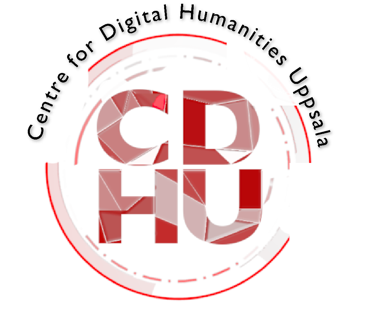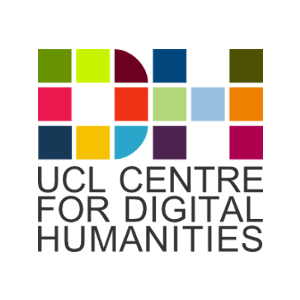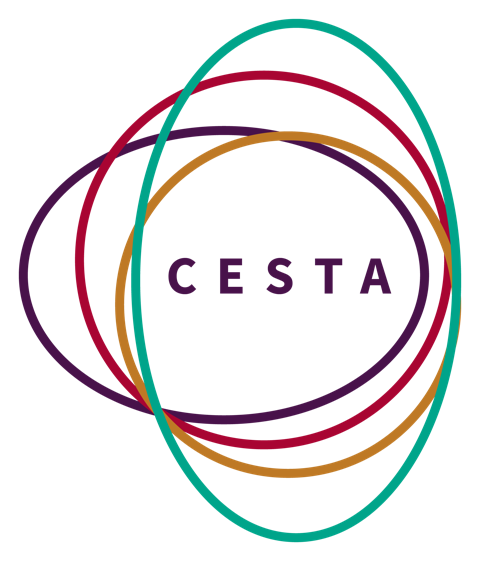2022 Schedule
Thursday, 10 March 2022
Decolonizing Knowledge Infrastructures: Open Access and Multilingual Scholarly Publishing
This talk will examine the emerging areas of research in Digital Humanities in India by an examination of the term “Digital Humanities” and its uneven and uncertain trajectory in the Indian research ecosystem. As with other systems around the world, DH in India is complex and contextual and each of us involved in the disciplinary practice encounter resistance and skepticism. Resistance to what is perceived as a deliberate distancing from the larger Humanities queries, scepticism about appropriating the rhetoric of STEM disciplines merely as a tool for greater legitimacy and validation. But of course DH is far more than a sum of its criticisms and scepticisms. I will address why it is imperative that the digital be harnessed, critiqued, deconstructed and dissected precisely so that the issues that Humanities scholars have been invested in continue to be at the centre of the development, deployment and dissemination of technology.
Speaker: Prof. Nirmala Menon (IIT Indore)Venue: CESTA, Online, via Zoom, 9:00 PST (17:00 GMT)</a>
Registration: Interested participants may register here
Chair: Agnieszka Backman
Uppsala Respondent: TBD
Stanford Respondent: Andrew Nelson
Thursday, 7 April 2022
Curating Enslaved Pasts of the Cape of Good Hope
Speaker: Prof. Grant Parker (Stanford)Venue: CESTA, Online, via Zoom, 9:00 PST (17:00 GMT)
Registration: Interested participants may register here
Chair: Laura Stokes
UCL Respondent: Meishu Ai
Stanford Respondent: Dr. Denise Lim
Thursday, 21 April 2022
SWECARCOL. Swedish Caribbean Colonialism 1784–1878: Research, Challenges and Opportunities for Caribbean Digital History
The Swedish Caribbean Colonialism 1784–1878 project (SweCarCol) integrates, orders and opens up important dispersed archives for research by publishing them on the Internet in cooperation with Uppsala University Library.
Speakers: Dr. Ale Pålsson and Dr. Victor Wilson (Uppsala)Venue: CESTA, Online, via Zoom, 9:00 PST (17:00 GMT)
Registration: Interested participants may register here
Chair: Clelia La Monica
UCL Respondent: Michael Donnay
Uppsala Respondent: TBD
Thursday, 5 May 2022
Transnational Digital Humanities in the Digital Black Atlantic
How do we reconcile transnationalism in the context of digital humanities? In what ways does transnationality risk perpetuating inequalities in digital knowledge production? In this talk, Roopika Risam will discuss her work co-editing The Digital Black Atlantic with Kelly Baker Josephs, as well as her work on the Pan-Africanism Data Project, to explore the fraught nature of transnational discourses and practices in digital humanities.
Speaker: Prof. Roopika Risam (Salem State)Venue: CESTA, Online, via Zoom, 9:00 GMT (17:00 PST)
Registration: Interested participants may register here
Chair: Giovanna Ceserani
Uppsala Respondent: Lisa Elofsson (Uppsala)
Stanford Respondent: Carmen Thong (Stanford)
Thursday, 19 May 2022
Central Asia and the Role of Digital Heritage Inventories
Speaker: Prof. Tim Williams (UCL)Venue: CESTA, Online, via Zoom, 9:00 PST (17:00 GMT)
Registration: Interested participants may register here
Chair: Julianne Nyhan
UCL Respondent: Anna Mladentseva
Uppsala Respondent: TBD
Thursday, 2 June 2022
Indigenous Knowledge in Digital Humanities
Speakers: Jessie Loyer(Mount Royal University)Venue: CESTA, Online, via Zoom, 17:00 GMT (09:00 PST)
Registration: Interested participants may register here
Chair: Adam Crymble
UCL Respondent: Jiayu Li
Stanford Respondent: TBD
Previous 2021 Events
Wednesday, 27 Jan 2021
From Engagement to Retreat? Historians and Digital Preservation 1968-2003
Speaker: Ian Milligan (University of Waterloo)Venue: UCL DH, Online, via Zoom, 17:00 GMT (09:00 PST): View the talk & read a recap
Chair: Adam Crymble
UCL Respondent: Hannah Smyth
Stanford Respondent: Agnieszka Backman
Tuesday, 9 Feb 2021
Digital Humanities Against Enclosure
Speaker: Jessica Johnson (Johns Hopkins University)Venue: CESTA, Online, via Zoom, 12:00 PST (20:00 GMT)
Chair: Giovanna Ceserani
UCL Respondent: Nenna Orie Chuku
Stanford Respondent: Anna Toledano
Tuesday, 23 Feb 2021
Digital Humanities and Spatial History: Atlantic World Stories
The paper describes and discusses a series of DH projects that have developed at CESTA and have addressed major issues in the history of the Atlantic World, including slavery and the experience of enslaved and freed persons in particular.
Speaker: Zephyr Frank (Stanford University)Venue: CESTA, Online, via Zoom, 12:00 PST (20:00 GMT): View the talk & read a recap
Chair: Laura Stokes
UCL Respondent: Madeline Tondi
Stanford Respondent: William Parish
Wednesday, 10 Mar 2021
Multilingual Publishing in Digital Humanities
Speaker: Riva Quiroga (Programming Historian)Venue: UCL DH, Online, via Zoom, 13:00 GMT (05:00 PST): View the talk & read a recap
Chair: Adam Crymble
UCL Respondent: George Cooper
Stanford Respondent: Victoria Rahbar
Tuesday, 13 Apr 2021
Humanités numériques, цифровые гуманитарные науки, デジタル・ヒューマニティーズ: Histories and Futures of Linguistic Diversity in DH
International, interdisciplinary spaces are inevitably sites of tension, where differences in linguistic and cultural norms run deeper than they initially appear. Establishing and maintaining a set of norms for a community to operate despite these differences requires ongoing dialogue within that community. This talk will reflect on language as one longstanding axis of diversity within digital humanities as it is carried out at the international level, as well as within different national contexts. This context will inform a frank discussion of the ways in which a general obliviousness towards languages commonly found in Anglophone countries has negatively impacted Anglophone scholars' research, pedagogy, and engagement with the broader field of DH. The talk will conclude with actionable steps that scholars, particularly in Anglophone countries, can take towards embracing language as an important axis of diversity.
Speaker: Quinn Dombrowski (Stanford University)Venue: CESTA, Online, via Zoom, 12:00 PST (20:00 GMT): View the talk & read a recap
Chair: Agnieszka Backman
UCL Respondent: Jin Gao
Stanford Respondent: Maciej Kurzynski
Tuesday, 27 Apr 2021
A Look Backwards Through the Index of Digital Humanities Conferences
Speakers: Scott Weingart (Carnegie Mellon University), Nickoal Eichmann-Kalwara (University of Colorado, Boulder)Venue: UCL DH, Online, via Zoom, 17:00 GMT (09:00 PST): Read a recap
Chair: Laura Stokes
UCL Respondent: TBD
Stanford Respondent: Yunxin Li
Wednesday, 12 May 2021
Complicating the whiteness of Digital Humanities: The Deep History of Black DH
While projects focused on Black culture, texts and artifacts are not as rare as they once were there remains a lack of understanding of the rich and deep histories of Black DH and its impact on the field. Sharon Leon’s foundation chapter, “Complicating a ‘Great Man’ Narrative of Digital History in the United States,” serves as a model of the necessary documentation that scholars must compile of alternative histories of digital humanities. Accordingly, this talk will document a deep dig into the ecology of digital humanities, centering Black DH work in the field. Among the scholars’ work discussed will be Abduhl Alkalimat, creator of e-black studies, Bryan Carter, Virtual Harlem, Marilyn Miller Thomas-Houston, iBlack Studies and co-editor of the multi-media journal Fire!!, Ronald Bailey, who developed www.dignubia.org and www.nubianet.org and Afro Publishing without Walls, and Maryemma Graham, History of Black writing. An ongoing project, I am conducting interviews with such foundational Black dh scholars to better understand their contributions to the field.
Speaker: Amy Earhart (Texas A&M University)Venue: UCL DH, Online, via Zoom, 17:00 GMT (09:00 PST): Recording forthcoming
Chair: Julianne Nyhan
UCL Respondent: Malithi Alahappruna
Stanford Respondent: Lakmali Jayasinghe
Wednesday, 26 May 2021
Web Archives Long View
This research seminar aims to explicitly consider that research happens in context. This presentation proposes to address the topic of born-digital heritage and in particular of web archives in context. It aims to question the past, present and future paths of research based on the plethora of born-digital sources that developed from the mid-1990s. Analysis of web archives requires both taking into account the very shaping of these archives - e.g. web archiving in context - and placing research on these web archives in context, from the early studies of the 2000s which focused on the nature of web archives themselves and the methods for studying them to current research that takes them as sources for exploring digital cultures. Thus, the first two parts of our presentation, devoted respectively to the history of web archiving and of web archives in research, will explore the multiple contextual elements at work. These may be related to the Web itself and its evolution, to institutional policies, or to crawling and analysis tools, and understanding them is crucial for addressing the current and future challenges that will arise for researchers, whether they concern transnational approaches, ethical issues or a claim for enhanced contextualization. In conclusion we will broaden the question to digital humanities, and consider why web archive studies have remained relatively marginalised in digital humanities discourse.
Speakers: Valérie Schafer (University of Luxembourg), Jane Winters (School of Advanced Study, University of London)Venue: UCL DH, Online, via Zoom, 17:00 GMT (09:00 PST): Recap forthcoming
Chair: Giovanna Ceserani
UCL Respondent: Opher Mansour
Stanford Respondent: Merve Tekgurler
Wednesday, 9 June 2021
Uncovering Digital History’s Forgotten Roots: the Work of the Association for History and Computing
This talk has two parts. It will first attempt to frame what a history of digital history might look like, by focusing on hybridity as a key characteristic of historical research, seen as some form of integrating newly emerging tools, technologies, materials, and/or practices in historical research, and mapped and qualified according to the main phases of historical research. My main argument here is that, in order to ground our current ‘digital’ practices and learn from past experiences and expertise, we need an answer to the question: what were, and are, the continuities and ruptures in the use and uptake of new technologies in historical research, and in the debates that accompanied them?
The paper will then proceed to outline what groundwork is necessary to explore digital history’s forgotten roots: a basic overview of the field’s different spatio-temporal trajectories and the networks of computing historians in the pre-PC and early PC period. A key focal point for such a reconstruction are the DH conferences that took place in the 1960s and 1970s, either as singular events or strands of bigger conferences such as the International Congress of Historical Sciences in Moscow in 1970, and later those that were organised under the aegis of the Association for History and Computing (AHC, 1987-2001) and its national member organisations. By studying which scholars attended and where they came from, and by linking that to the topics and methods that were discussed, it will be possible to chart, over time, shifting geographical, topical and methodological developments.
In the second part of my paper, I will provide the first results of a concrete case study which is part of this broader endeavour, namely a web archaeology of the old AHC website and H-NET Discussion List for History and Computing (now: H-DigitalHistory).
This talk has been canceled.
Chair: Julianne Nyhan
UCL Respondent: Marco Humbel
Stanford Respondent: TBD
Tuesday, 22 June 2021
Laboratory Life in the Humanities: Computation, Criticism, and Collaboration
The Digital Humanities have profoundly altered the way that humanities scholars work, research, and teach. While the introduction of computational methods, from GIS, to Digital Archives, to Text Mining, have opened up new fields to practitioners, these fields have also changed the social fabric of the humanities. Although the myth of the lone scholar, toiling away in their office, or in the archives, remains deeply embedded in the psyche of the discipline, the growing influence of the Digital Humanities has begun to offer scholars other opportunities for research work and teaching. Not only are our new methods collaborative by nature, they are often collaborative by necessity, frequently requiring us to work in teams that can leverage different experience and skills towards a set of research goals. In this talk, I want to explore the ramifications of this shift in research practice, focusing on the sociology of the humanities lab, as distinct from both the science laboratory, and the traditional practices of History, Classics, Philosophy, Cultural Studies, and Literary Study. How has the collaborative nature of our work altered the kinds of research that we can produce? How has interdisciplinary cooperation challenged ideas of evidence, method and results in the humanities? How has the collaborative model of research changed our pedagogy? What new kinds of equality, and inequality, between faculty, staff and students, has this change enabled? And what does it mean to work collaborative in fields whose institutional structures persist in disincentivizing collaboration? Drawing on my own experience working at, and directing, the Stanford Literary Lab, an ongoing collaborative research group that is celebrating its 10th anniversary this year, I want to focus on the outstanding questions that we are only now beginning to address around this radical shift in the humanities.
Speaker: Mark Algee-Hewitt (Stanford University)Venue: CESTA, Online, via Zoom, 12:00 PST (20:00 GMT): View the talk
Chair: Agnieszka Backman
UCL Respondent: Urszula Pawlicka-Deger (King’s College London)
Stanford Respondent: Mae Velloso-Lyons


